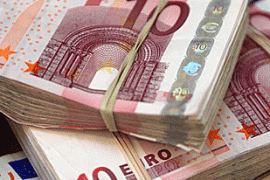Banks await ‘stress test’ results
Officials to issue assessment of 91 European banks in bid to restoring confidence.

Financial officials say they fear that bad news could hurt markets again, while good news may prompt investors to believe the tests were not rigorous enough.
‘Clear the uncertainty’
Jan Randolph, an economist with the organisation Global Insight in London, said the tests are aimed at identifying the fragility of European banks.
“The whole point of this exercise is to sort the good banks from the needy banks – those that need capital – from the downright ugly – those that don’t have an economic future,” he told Al Jazeera.
“What we’re really concerned about is the larger banks: what kind of exposure they have to property, the past toxic assets, subprime problems, but also the exposure to sovereign debt.
“[Those banks have] got to clear the uncertainty, they’ve got to reveal more than they have already. Unless that happens, the suspicion will remain.”
US stress tests
The European tests follow similar assessments carried out on 19 US banks last year, in which 10 banks were told to raise about $75bn in extra capital to prevent a further major slump in the economy.
Banks can raise cash by either converting loans from the government or private sector into capital, selling assets, selling stocks, or asking the government for money.
Most of the 91 European banks tested are expected to pass the tests but analysts have said some institutions must fail for the assessments to have any credibility.
The list of banks includes several from Portugal and Greece, where Europe’s debt crisis prompted the Greek government to take a $140bn international bailout to avoid bankruptcy.
The crisis has also pushed European governments to put up a 750 billion Euro backstop for troubled governments if they need it.
Also included are regional German banks, the Landesbanken, which made oversized bets on global financial markets before the 2008 financial crisis.